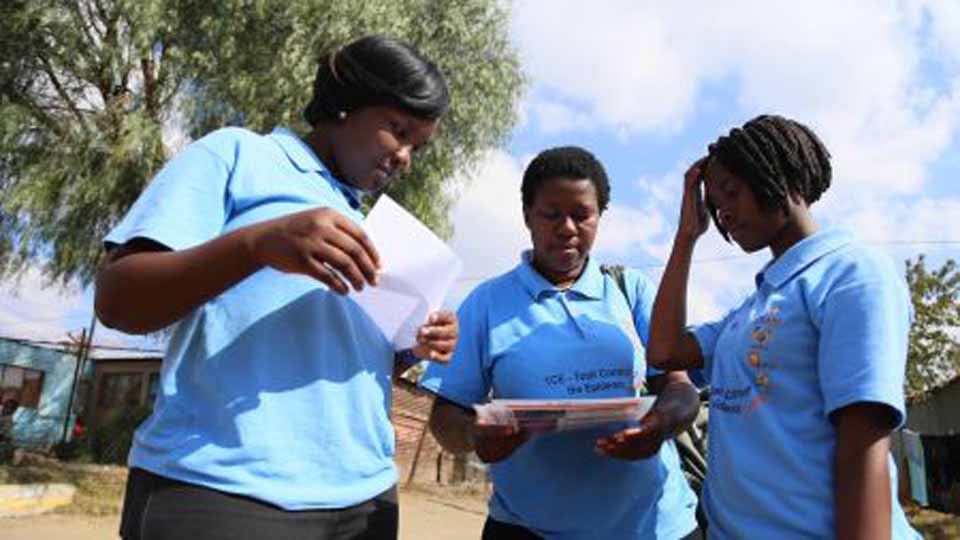

Written by Nondumiso Mntuyedwa and Kilford Zimondi, Humana People to People South Africa
There's been huge concern that many poorer, less-developed countries are being left behind in the global competition to secure vaccine supplies.
Already in October 2020 South Africa and India took the lead on behalf of the developing countries and submitted a patent waiver proposal on Covid-19 vaccines to the World Trade Organisations (WTO). The background of this proposal was to open up for production of vaccines wherever the capacity was present by pooling the technology developed financed by government resources in the rich countries. This proposal has been rejected by some of the powerful members of WTO such as Great Britain and Germany. And until today, most developing countries have had to compete on the global market or rely on charity for accessing vaccines.
South Africa was among the first developing countries to receive the trial vaccination in early February 2021.
Government of South Africa has been working closely with South African Health Products Regulatory Authority (SAHPRA) to ensure there is no delay approving the vaccine for use. The Oxford University-AstraZeneca vaccine has already been approved by various regulators around the world and is being rolled out in other countries. South Africa is also rolling out its national COVID-19 vaccine programme, which aims to vaccinate 40 million South Africans. The programme entails procurement, distribution, vaccination, monitoring, communication and mobilisation.
How are the vaccines being rolled out?
The vaccination program is being rolled out in a three-phase approach, which we started with the most vulnerable in the South African population.
The rollout is being overseen at the highest level by the Inter-Ministerial Committee (IMC) on Vaccination, chaired by Deputy President David Mabuza. The IMC will assist in advancing the vaccine rollout and strategy with quick decision-making to ensure a smooth implementation of the vaccination programme. It meets weekly to receive reports and intervene in unlocking any challenges that may be encountered.
Despite the best efforts of the government so far only 15,9 doses have been administered per 100 population and 7,2% are fully vaccinated (14th August 2021).
Challenges the country is facing in rolling out the vaccine
South Africa’s vaccine roll-out is currently facing major challenges and one of them is convincing people to get the vaccines and ensuring that deliveries of vaccines continue to grow. From the 9th to the 18 of July 2021the country underwent violent unrest that affected the economy of the country very badly. The violent unrest had a dreadful impact on the country’s healthcare and emergency services that brought the COVID-19 vaccine roll-out to a standstill in at least 2 provinces, as the country was battling with a third wave of the pandemic. The government temporarily halted vaccinations in the Gauteng and KwaZulu-Natal provinces where sites were affected by the ongoing looting and unrest in the country. The setback came as the country was trying to contain COVID-19 infections with a strict curfew, a ban on alcohol sales and restrictions on movement.
Africa struggling to secure vaccines
According to the research conducted by News2, Africa remains the continent, which is most lagging behind, with 4.8 doses administered per 100 habitants, 10 times less than the world average of 52 shots. Most poor countries have now started to vaccinate, assisted by Covax scheme and donations of unused doses by rich countries. Covax was created last year to ensure Covid vaccines were made available around the world, with richer countries subsidizing costs for poorer nations. Its initial goal was to provide two billion doses of vaccines worldwide in 2021, and 1.8 billion doses to 92 poorer countries by early 2022. Covax is run by several international organizations, including the World Health Organization (WHO) and the UN children's charity, Unicef.
However, it has been reported that more than four billion doses of anti-Covid vaccines have been administered around the world, but poorer countries are still struggling to secure precious shots despite recent donations. The vaccination coverage remains very unequal with high-income countries (as defined by the World Bank) administered an average of 97 doses per 100 inhabitants compared with just 1.6 doses in low-income countries. South Africa has the continent's highest number of coronavirus cases, but so far it has only vaccinated 7,2% of its population. While some countries have procured enough vaccines to inoculate their populations twice over, South Africa is struggling.


